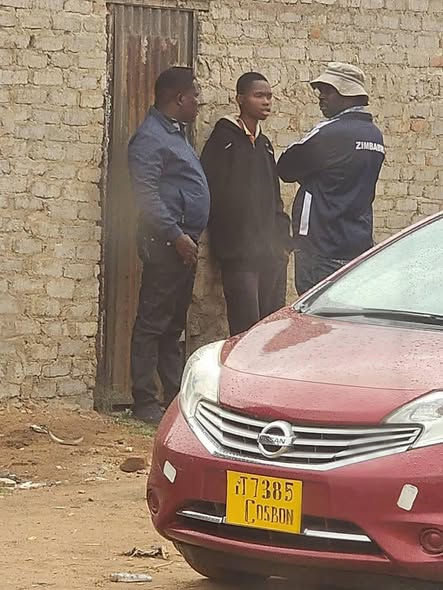Unite to end Gender Violence
- Crisis Regional Media

- Nov 25, 2022
- 3 min read
Statement on International Day for the Elimination of Violence against Women and Girls
The Crisis in Zimbabwe Coalition, an umbrella body of Civil Society Organisations operating in Zimbabwe, joins the global community in commemorating the International Day for the Elimination of Violence Against Women. This day, commemorated on 25 November each year, marks the start of the 16 Days of Activism against Gender-Based Violence which conclude on 10 December as the world commemorates International Human Rights Day.
The 2022 commemorations are being held under the theme, "UNITE! Activism to End Violence Against Women and Girls." The day and the entire 16 Days period are a significant marker and show of commitment by progressive forces around the world and as led by civil society, in ending all forms of violence against women and girls.
In Zimbabwe, the major contributing factors to gender-based violence include patriarchy, societal and religious beliefs, politics, a culture of impunity that protects and shields perpetrators as well as the fact that some of the victims continue to suffer in silence due to limited knowledge of their constitutionally guaranteed rights and in some cases, an unresponsive and under-resourced legal system. Women and girls have also not been spared by the deteriorating socio-economic conditions being witnessed in Zimbabwe and the unequal development taking root through the capitalist-centred policies of the Second Republic. The prevailing economic situation has resulted in increased cases of gender-based violence at home and at the workplace. In some cases, gender based violence is related to poor service delivery and cases of women being victimised at water points in urban areas continue to be reported.
Statistics show that 1 in every 3 women and girls have experienced some form of abuse in their lifetime. Zimbabwe has witnessed a surge in cases of childhood pregnancies and statistics show that between September 2021 and August 2022, over 20 000 pupils from primary and secondary schools dropped out of school after falling pregnant.
Locally, the Coalition appreciates the important role being played by civil society and especially by women and womens' groups towards ending violence against women and girls. Women constitute 52 percent of the total population in Zimbabwe and their role in sustainable community and national development cannot be overemphasised. However, all the dividends that accrue from the equitable participation of women continues to be hampered by the scourge of gender-based violence. We reiterate the need for a robust and collective approach, which requires unity of purpose among different stakeholders in creating safe spaces and equal opportunities for women and girls.
Placing women at the core of development processes implies doing away with major impediments to equality hence our call for collective action from all stakeholders in ending gender based violence. Empowering communities to fight violence against women and girls is thus critical and more importantly, the judicial system needs to be very responsive and hold perpetrators of gender based violence to account. Violence against women and girls is a serious pandemic that calls for continuous efforts to nip it in the bud.
As we commemorate the International Day for the Elimination of Violence Against Women, the Crisis in Zimbabwe Coalition makes the following recommendations;
In line with Section 80 of the Constitution, the government of Zimbabwe must take reasonable legislative measures to ensure women have equal opportunities in political, economic and social activities. It is thus imperative for the government to align legal frameworks on the protection of women and girls to the constitution and ensure improved access to justice
The Government of Zimbabwe and law enforcement agents must take measures to ensure the safety of women in political spheres. This calls for the law enforcement agents to execute their mandate in an impartial manner and bring all perpetrators of political violence to book. Political parties have the obligation to create safe spaces for women as they have often been victims of intra-party violence
Ahead of the 2023 elections, political parties must de-escalate conflict and make a peace pledge that will promote peace and tolerance
Civil society needs to unite and come up with strategies aimed at empowering communities to prevent and stop gender-based violence . There is a need to adopt a collective and holistic approach to gender issues. Public awareness of the constitution, especially on issues related to the promotion of gender equality and fundamental human rights is critical. Engaging stakeholders such as the Zimbabwe Human Rights Commission, the Zimbabwe Gender Commission, law enforcement agents as well as the traditional leadership on strategies to combat gender based violence is equally important.






Comments